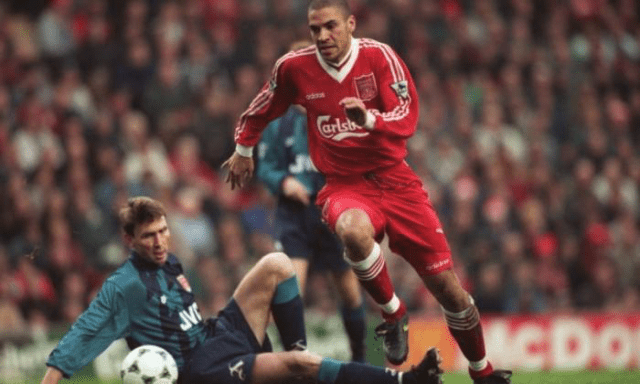
How To Promote Wellbeing For Your Athletes’ Mental Health?
Mental health has come to the fore in recent years, as we slowly start to learn more about wellbeing. Helping to overcome its stigma, celebrities, athletes and public figures have started to open up about their personal struggles in recent years. Even the Royal Family have endorsed Heads Together – a charity that tackles mental health head-on.
As we have learnt, no-one is immune to it either; the World Health Organisation estimate that one in four of us will be affected by mental or neurological disorders at some point in our lives. This includes athlete’s mental health as much as any other industry.
Everyday stresses
In a report conducted by mental health charity Mind, they found that sportspeople face a unique set of pressures in their jobs, as well as potential media scrutiny.
It has been well documented how certain famous players have been affected by this, some regretfully taking their own lives. Their findings concluded that more needs to be done to support athletes, particularly at key transitional points, such as “entering professional sport, and signing their first contract, long-term injury and retirement.”
Since a sports coach is responsible for the wellbeing of their team, here’s some steps to manage wellbeing in sport’s athletes.

mental health problems during his playing days.
Encourage an open culture
It all starts with the culture you create. The best environment to flourish in, is one that celebrates an open culture, and is respectful of individuals. This tends to come from the top down, in any organisation you look at.
One of the ways you can encourage this culture, is by being open with your feelings and encouraging your athletes to do the same – without the fear of being judged. Any behaviour that contradicts this need to be dealt with immediately.
Whether in team talks, team building, training or competing, encourage your athletes to be honest – with you and each other.

Make mental health support accessible
The role of a sports coach has many demands, on and off the field. One of these is to offer mental health support to your team.
Sometimes athletes may not be aware of their feelings, or may not want to approach anyone about them. This is why it’s crucial to make mental health support widely accessible and present.
Many sporting bodies have a team psychologist or counsellor available to their athletes. It is often encouraged to visit them frequently, especially if they are under pressure before a big competition.

making mental health support more available.
Educate
One of the ways we can help overcome the stigma of athletes’ mental health, is through education and good practice.
As a sports coach, this can be achieved by if you work with relevant partners and host sessions, or offering regular talks with individuals. Dealing with problems early can be beneficial to overall wellbeing and performance.

believes more can be done to improve support.
Encourage self-expression
Self-expression has been said to help us connect and grow with each other.
As part of wellbeing in sport, we can encourage athletes to express themselves. It promotes transparency and acceptance, and reminds us that there’s no such thing as a ‘one-size fits all’ mould.
Thankfully, we are living in a time where self-expression is promoted, removing the need to ‘fit in’ and be like everyone else. Athletes, like all individuals, deserve the right to be respected and not judged for who they are.
Sarah Reinertsen offers us a great example of self-expression through sport, and empowering athletes to be themselves. Watch it?
Support strategies
It’s beneficial to have strategies in place to support athletes who are experiencing mental health challenges.
This could be regular one-on-one meetings with a qualified counsellor to talk through their issues, time-off, specific therapy and much more. There is no one solution to suit all, but there needs to be a system in place to spot the signs of mental health, and intervene where necessary.
An inspiring benchmark is from Rugby League, who got involved in a ‘In your corner’ campaign to encourage players to open up about their feelings. With men three times more likely to take their own lives than women, this specific campaign was intended to address some of the wider issues relating to male mental health in sport.

External partners
As mentioned, there is no shortage of great charities, foundations and support groups to partner with. There are a number of organisations that help promote wellbeing in sport, that can be useful to team up with.
Work together with these organisations and help provide interventions and support to athletes when they need it most. In partnership with Sport England, Mind have produced a useful toolkit, it specifically looks at the ways that sport in itself may help with mental health issues.

Develop psychological skills
And finally, it’s worth considering how you can build programmes to help athletes develop their psychological skills.
You may decide that one-on-one development programmes can help with anxiety or personal issues they are struggling with. You may also wish to introduce strategies that include mindfulness, yoga or Pilates as a tool.
It’s good to talk…
Mental health is an issue we will all likely encounter, through our network or ourselves, at some point. It is no longer a stigma, but encouraged to be talked about and managed.
Wellbeing in sport is as important as performance; especially when athletes are expected to live up to such high expectations and compete under extreme pressure.
As a sports coach, you can help with this burden when you promote an open culture, encourage individuality and ensure a support system is in place, when it comes to mental health.
Keen to unlock your potential as an individual or business?
Get in touch here today to organise an appointment today.